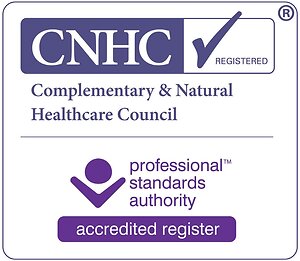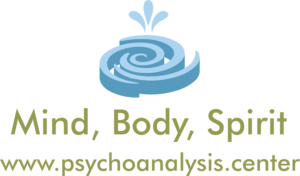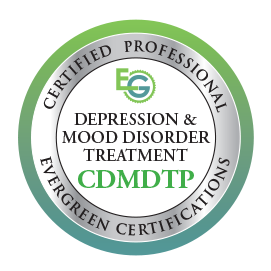Hypnotherapy and Hypnoanalysis as Psychotherapy or Complementary Therapy
What is Hypnotherapy?
Hypnotherapy is the use of complementary therapy or psychotherapy methods in a relaxed state known as hypnosis. Hypnosis or trance is a state where you are not asleep, and indeed your attention is more focused, just in a different way. This enables better change process learning and unconscious mind accessing. In contrast sleep would be most unhelpful! Complementary therapists tend to use direct suggestion and visualisation only. Multi modal and Integrative psychotherapists trained in clinical hypnotherapy tend to use a wider range of hypnosis methods including Hypnoanalysis, Cognitive Behavioural Hypnotherapy and Ericksonian Hypnotherapy (a form of conversation based hypnosis). In conversational hypnosis no relaxation or trance is needed, the suggestion and imagery are woven into psychotherapeutic conversation.
What is Hypnoanalysis?
Hypnoanalysis is the use of psychoanalysis together with hypnosis. In the relaxed hypnotic state it is possible to track emotions and physical representations of thoughts and emotions more easily using hypnosis (or EMDR). Variations include word association and free association. Hypnoanalysis is a form of clinical hypnotherapy and psychotherapy. It is also known as Analytic Hypnotherapy and is based on forms of psycchoanalysis older than Freud.
A common use of analytical hypnotherapy today is in parts work, somatic processing and other mind-body related treatments. These are usually employed in cases like Complex PTSD / Trauma, and in addressing other developmental related issues.
Analytic hypnotherapy, also known as hypnoanalysis, is a therapeutic approach that combines the techniques of hypnosis with the principles of psychoanalysis. It aims to uncover and address unconscious conflicts, emotions, and memories that may be contributing to psychological distress or behavioral patterns.
Here's a breakdown of analytic hypnotherapy:
Core Idea:
Analytic hypnotherapy is based on the premise that many psychological difficulties stem from unresolved issues or traumas that are stored in the unconscious mind. By accessing the unconscious through hypnosis, individuals can gain insights into the root causes of their problems and work towards healing and change.
How it Works:
- Induction of Hypnosis: The therapist guides the individual into a relaxed, focused state of consciousness known as hypnosis. This state allows for greater access to the unconscious mind.
- Exploration of the Unconscious: Using various techniques, the therapist helps the individual explore their unconscious thoughts, feelings, and memories. This may involve:
- Free Association: The individual is encouraged to speak freely about whatever comes to mind, allowing unconscious material to surface.
- Regression: The individual may be guided to revisit past experiences or earlier developmental stages to uncover the origins of their current difficulties.
- Dream Analysis: Dreams can be explored as symbolic representations of unconscious conflicts or desires.
- Symbolic Imagery: The individual may be asked to visualize or draw images that represent their unconscious experiences.
- Interpretation and Working Through: The therapist helps the individual understand the meaning of the unconscious material that emerges and work through any emotional or psychological blocks.
- Integration and Change: The insights gained from analytic hypnotherapy are integrated into conscious awareness, allowing the individual to make changes in their thoughts, feelings, and behaviors.
What Analytic Hypnotherapy Can Help With:
Analytic hypnotherapy can be beneficial for a range of issues, including:
- Anxiety disorders: Uncovering and addressing unconscious anxieties and fears.
- Depression: Exploring unresolved grief, trauma, or negative self-beliefs.
- Phobias: Identifying the root causes of phobias and desensitizing the individual to the feared object or situation.
- Trauma: Processing traumatic memories and releasing associated emotions.
- Relationship issues: Understanding unconscious patterns in relationships and developing healthier ways of relating.
- Habit disorders: Addressing the underlying psychological factors contributing to habits like smoking or overeating.
- Personal growth: Gaining deeper self-awareness and understanding.
Benefits of Analytic Hypnotherapy:
- Accelerated process: Hypnosis can help access unconscious material more quickly than traditional talk therapy.
- Increased self-awareness: Provides deeper insights into the origins of psychological difficulties.
- Emotional release: Can help release repressed emotions and traumas.
- Behavioral change: Facilitates lasting changes in thoughts, feelings, and behaviors.
Important Considerations:
- Finding a qualified therapist: It's essential to work with a therapist who is trained and experienced in both hypnosis and psychoanalysis.
- Suitability: Analytic hypnotherapy may not be suitable for everyone, particularly those with certain mental health conditions.
- False memories: There is a potential risk of creating false memories during hypnosis, so it's important to work with a skilled and ethical therapist.
What is Cognitive Behavioural Hypnotherapy?
Cognitive Behavioural Hypnotherapy (CBH) is the use of cognitive behavioural therapy (a form of psychotherapy), in a state of hypnosis. This allows for better focus, better emotional management with difficult topics and better learning and practice, especially if the routine is recorded and repeated.
Cognitive behavioral hypnosis (CBH) is a therapeutic approach that combines the principles of cognitive behavioral therapy (CBT) with the techniques of hypnosis. It aims to help individuals identify and change unhelpful thinking patterns and behaviors while utilizing the focused attention and increased suggestibility of the hypnotic state to enhance therapeutic change.
Here's how cognitive behavioral hypnosis works:
- CBT foundation: CBH is grounded in the principles of CBT, which emphasizes the interconnectedness of thoughts, feelings, and behaviors. It helps individuals identify and challenge negative or distorted thoughts that contribute to emotional distress and unhelpful behaviors.
- Hypnosis for enhanced focus: Hypnosis is used to induce a relaxed and focused state of mind, where the individual is more receptive to suggestions and new ways of thinking. This heightened state of awareness can facilitate the identification and modification of deeply ingrained thought patterns and beliefs.
- Combining cognitive and hypnotic techniques: CBH therapists utilize a combination of cognitive and hypnotic techniques, such as:
- Cognitive restructuring: Identifying and challenging negative thoughts and replacing them with more balanced and realistic ones.
- Guided imagery: Using visualizations and mental imagery to create new positive associations and experiences.
- Suggestion therapy: Offering direct or indirect suggestions to the subconscious mind to promote desired changes in thoughts, feelings, or behaviors.
- Anchoring: Creating anchors or triggers to access positive emotional states or helpful behaviors.
Benefits of Cognitive Behavioral Hypnosis:
- Increased self-awareness: CBH helps individuals become more aware of their thoughts, feelings, and behaviors, allowing them to identify patterns that contribute to their challenges.
- Changing negative thoughts: It provides tools and techniques to challenge and reframe negative or distorted thoughts, leading to more positive emotions and behaviors.
- Enhanced relaxation and focus: Hypnosis can induce deep relaxation and focus, which can be beneficial for managing anxiety, stress, and other emotional difficulties.
- Increased motivation and self-efficacy: CBH can help individuals increase their motivation for change and develop a stronger belief in their ability to achieve their goals.
- Addressing a range of issues: CBH can be used to address a variety of mental health concerns, including anxiety, depression, phobias, trauma, and unhealthy habits.
In conclusion, cognitive behavioral hypnosis is a promising therapeutic approach that combines the strengths of CBT and hypnosis to create positive change in individuals. By addressing both thoughts and behaviors while utilizing the focused state of hypnosis, it can help individuals overcome challenges, develop new skills, and achieve their goals.
What is Mindfulness based Hypnosis?
Mindfulness is a form of eastern psychology and psychotherapy often associated with meditation. Hypnosis is another way in which the various parts of mindfulness can be used. These include the analytic part, the meditation and the self analysis part, as well as enhanced breathing and visualisation exercises. All of these are used within the context of psychotherapy.
Mindfulness-based hypnosis is a therapeutic approach that combines the principles of mindfulness with the techniques of hypnosis. It involves cultivating a state of mindful awareness while in a hypnotic trance to enhance self-awareness, promote relaxation, and facilitate positive change.
Here's how mindfulness-based hypnosis works:
- Mindfulness: Mindfulness involves paying attention to the present moment without judgment. It is about observing your thoughts, feelings, and bodily sensations with openness and curiosity.
- Hypnosis: Hypnosis is a state of focused attention and increased suggestibility. It allows for deeper access to the subconscious mind, where beliefs, habits, and automatic reactions are stored.
- Integration: Mindfulness-based hypnosis integrates these two approaches by guiding individuals into a hypnotic trance while encouraging a mindful awareness of their present-moment experience. This combination can enhance self-awareness, reduce stress, and promote positive change.
Benefits of Mindfulness-Based Hypnosis:
- Reduced stress and anxiety: The combination of mindfulness and hypnosis can induce deep relaxation and reduce stress and anxiety levels.
- Enhanced self-awareness: By cultivating mindful awareness in a hypnotic state, individuals can gain a deeper understanding of their thoughts, feelings, and behaviors.
- Improved emotional regulation: Mindfulness-based hypnosis can help individuals develop skills to manage their emotions more effectively.
- Increased focus and concentration: The focused attention cultivated in both mindfulness and hypnosis can improve concentration and attention span.
- Positive change: Hypnotic suggestions and imagery can be used to promote positive changes in thoughts, feelings, and behaviors.
- Pain management: Mindfulness-based hypnosis can be helpful in managing chronic pain by changing perceptions and promoting relaxation.
Applications of Mindfulness-Based Hypnosis:
- Stress and anxiety management: Reducing stress, anxiety, and promoting relaxation.
- Emotional regulation: Improving emotional regulation and coping with difficult emotions.
- Habit change: Changing unwanted habits, such as smoking or overeating.
- Personal development: Enhancing self-esteem, confidence, and motivation.
- Pain management: Managing chronic pain and reducing discomfort.
- Trauma recovery: Helping individuals process traumatic experiences and reduce their impact.
What is conversation based hypnotherapy or hypnosis?
People often think that hypnosis is always formal, where a trance is planned, announced and entered into, However in reality we flow in and out of different levels of altered state similar to trance all the time. Perhaps when laughing, watching a film, day dreaming etc. So in conversation certain concepts, words and phrases can encourage this and allow the psychotherapist to use conversational or Ericksonian Hypnotherapy to guide, provoke, support, encourage or reinforce appropriately. This adds a great deal of power to psychotherapy sessions.
Specialist use of hypnosis
I have focused much of my hypnosis based work for a large part of my career on Trauma recovery. In 2020 I completed professional certification in the specialism of treating Trauma with Hypnosis, Neurology and Mind/Body therapy methods. Advanced use of hypnosis for trauma is a far more comprehensive and adaptable method than EMDR. Indeed much of EMDR is based on NLP, which in turn modelled and simplified the work of hypnotherapist Milton Erickson. EMDR provides a protocol driven and hugely simplified method for talking therapists not trained in the more comprehensive hypnosis based methods. I have taken master classes in EMDR to ensure I have studied this method as well, but as leading expert in trauma Bessel Van De Kolk said in an interview - to do hypnosis well for trauma you have to be "really smart", while EMDR is much easier.
Analytic Hypnotherapy and Psychotherapy are available in my central Edinburgh practice. I (Stuart) are registered under hypnotherapy on the CNHC PSA Accredited Register.
























